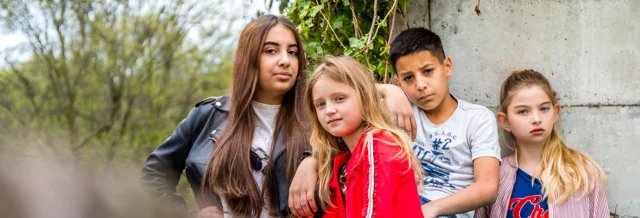Collaboration partners
Within our working method, collaboration with the informal and professional network is crucial. Only when we have a shared image and focus and work together as a close team can we support the family and help create the change that is needed. It is important to realise that no one can accomplish this important work alone. Everyone who is involved with the children and families from a family (relationship) or professionally, is an important link. Together we do what is necessary.
Collaboration is crucial
Collaboration with our partners is crucial to realise our mission of giving ‘every child permanent safety’. We emphasize that we have a fleeting role and we need others to carry out our assignment and ensure a long-lasting result. We would like to find the right solution based on an inclusive idea with all those involved. The most important collaboration partners are the parents and the children themselves, followed by their informal support network. The support they provide can make all the difference.
Neighbourhood and youth teams
The interaction with the neighbourhood and youth teams is intensive because they safeguard the common thread. They are in contact with the families both before and after our involvement to give ‘every child permanent safety’ has been completed. They therefore play an important role in the timely identification of problems in the family where the safety of the children is at stake and in safeguarding and expanding the results achieved. That is why it is important that the youth team remains fully involved during our intervention. Also because they are an essential partner for us in organising help within our own municipality for themes such as debts and housing.
Adult Mental Health Care
In our work practice we see that personal problems of parents or educators often stand in the way of children growing up safely. In our families, it often appears that the problems of the children arise from problems (for generations) with parents, which often have to do with psychiatric problems, including trauma, violence and poverty. These problems contribute to developmental, cognitive and behavioural problems in children. In line with our desire to provide systemic care, we consider collaboration with adult mental health care to be valuable and essential in the realisation of our assignment. Among other things, to see what influence the problem has on their role as educators. And whether we can use the established relationship to make them receptive to accepting treatment, in the interest of their children.





 Spoed & crisis
Spoed & crisis



